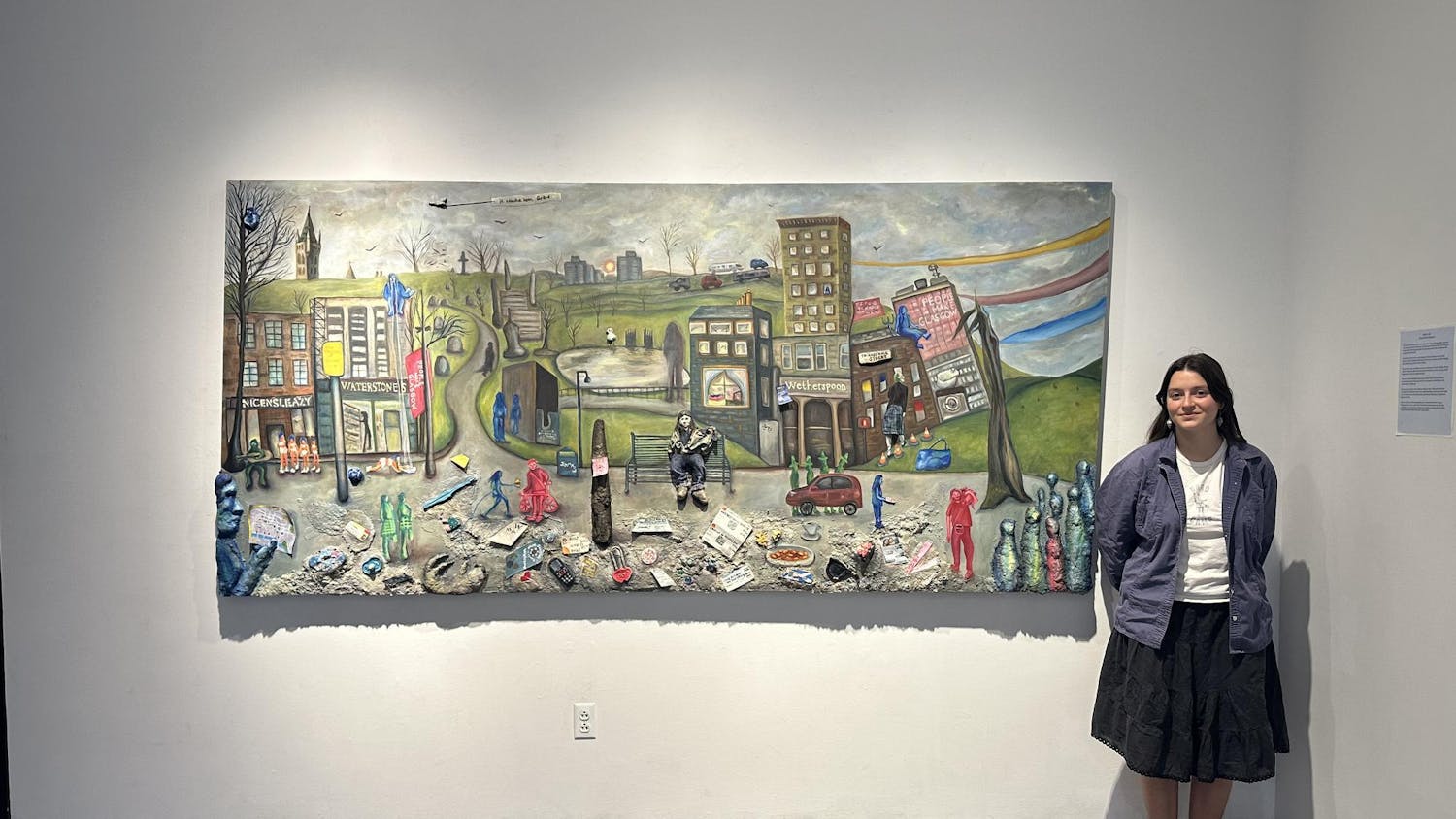Chairs were closely clustered around a table of tea and homemade baklava in the Chelovich Family Lounge of the literary arts building this Thursday. In the intimate and informal environment, Nihad Sirees read from his novel, "Silence and the Roar," the text marked with crossed-out lines and marginal notes.
The Syrian writer is the latest recipient of Brown's International Writers Program fellowship, which was developed just under 10 years ago to provide an opportunity for oppressed or threatened writers and artists from around the world to come to Brown and express themselves without fear of censorship or political backlash.
Much of Sirees' artistic inspiration is drawn from the social backdrop of his native city, Aleppo. "It is a special city," he told The Herald. "It was one of the first independent cities in the world, and its culture reflects these deep roots."
As a boy, he sequestered himself in his father's extensive library, he said. "I read anything. Anything. My favorites were the tales from 'Arab Nights.'"
He was also inspired by stories told to him by his grandmother in his youth, he said. "(She) told me strange stories of strange worlds, of brave heroes making impossibilities into possibilities."
Years later, when his grandmother was dying, he retold to her the stories that she had ingrained in him at a young age. "She laughed and asked me where I'd gotten these stories from - she didn't remember. But I did," he said.
Sirees channeled this interest in literature into a politically-charged career. "Silence and the Roar" depicts the personal and political implications of a cruel dictatorship.
The selection Sirees read portrayed a conversation between the polemic narrator and his aging mother, who tries to hide her concern over her son's safety in an increasingly unstable environment. The read also depicted a corrupted leader and the rippling impact of his twisted policies through a symbolic anecdote of him physically falling and being caught by the narrator.
"The reading gave a sense not only of the personal nature of the work, but also of the book's larger social project," said Cole Swensen, chair of Brown's literary arts program.
"The novel is not only elegantly written, but also historically and socially intense," said Gale Nelson, Brown's literary arts academic program director. "It focuses the reader on the political context of the piece as well as its emotional registration."
A significant aspect of the novel is its intentional ambiguity. The corrupted leader is not named, nor is the country, but the parallels between the novel and Syrian dictatorship speak for themselves. The vague language was a necessary safety measure by Sirees - a self-protecting strategy against government wrath.
"I thought it was really compelling that he framed his story in such general terms," said Ben Luton, a first-year student in Brown's literary arts graduate program for poetry. "As an outsider to these political upheavals, it was interesting to consider the intellectual responses to the regime."
The book was written in 2004, but due to censorship it was sent to Lebanon for publication, Sirees said. From there it was smuggled back into Syria, distributed and later exported. After being targeted by the government for the critical undertones in his work, Sirees said he left the country to live in self-imposed exile in Egypt.
"It was impossible to live there anymore as a writer," he told The Herald. "It is not just about eating and drinking. Writers - we need peaceful and calm circumstances in order to think and create."
"I think (IWP is) one of the most important things Brown does," Swensen said. "It's not just an idea but something that concretely aids individuals. The freedom to write is essential to freedom in general. You cannot have a free society without freedom of expression. The fact that Brown concretely supports this change in the world is, in my opinion, a feather in its cap."
A committee member of IWP, Nelson said Sirees was selected by the IWP based on his living situation and the quality of his work. "It was really a marriage of factors, namely his unfortunate circumstances and his literary talents," he said.




